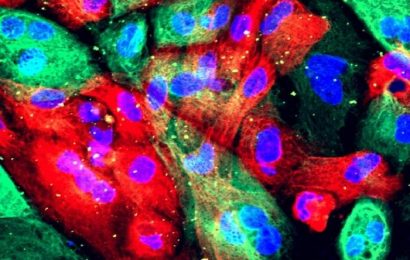Thirty percent of Americans have at least one tattoo. For the rest of the population, there's been the option of a temporary version for at least a century. But it's just recently that fleeting tattoos have become a varied and nuanced art form much like their permanent counterparts. Many companies now collaborate on designs with the most sought-after tattoo artists — and are bringing impressive technology into the mix.
One standout is Tattly. Founder Tina Roth Eisenberg has worked with tattoo artists and illustrators, including Instagram-favorites like Tea Leigh and Jess Chen, since the brand launched in 2011. Now, even real-tattoo-havers are eager to find a spot for these highly detailed designs, like fanciful lavender and baby-blue flowers in Chen's Petite Garden. On average, the vegetable-based ink lasts two to four days.
Mira Mariah — a.k.a. @girlknewyork, a.k.a. one of Ariana Grande's go-to tattoo artists — has done three collaborations with a site called Inkbox. It has over 4,000 designs to choose from (Mariah's "Glorious" moon is a fan favorite), plus customizable options (upload your own design, or create one from a library of fonts and thousands of images); every tattoo lasts one to two weeks. Mariah says her clients often order them to figure out the placement for their real tats. The downside: Mariah has seen her Inkbox tattoos used as "stencils" by other artists.
But you can take the artistry into your own hands ethically: Freehand Ink (available at Inkbox) comes in traditional black and a shading color (a lighter black) — it's a straight-up ink bottle with a tiny tip that enables you to draw directly on your skin, with results lasting up to two weeks. And Prinker, a South Korea-based company, released a smart temporary tattoo printer at this year's Consumer Electronics Show. Upload your own design to its companion app (or pick one from its massive catalog of user- and artist-generated options) and the device will print the design onto your skin using cosmetic-grade ink that washes off with soap.
The brand intentionally made these tattoos easier to remove than traditional press-ons: "We have a really conservative situation here in South Korea. If you show up [to work] with a [temporary] tattoo, your coworkers and boss might be really surprised and you might just get strange looks," says Magdalena Przygonska, who handles global marketing at Prinker. When the COVID-19 pandemic temporarily shut down much of the tattoo industry, "we noticed there was a huge interest [in our tattoo printer]," Przygonska adds.
Around the same time, Mariah debuted her second Inkbox collaboration, a stay-at-home-themed collection, which she hoped would "help people get their tattoo fix." Stay-at-home seems to be a running theme in our lives, so we may all be curating our own temporary sleeves for the foreseeable future.
Source: Read Full Article


